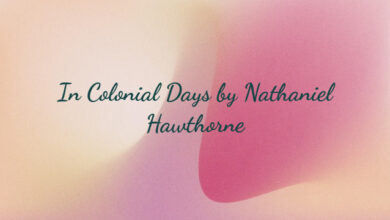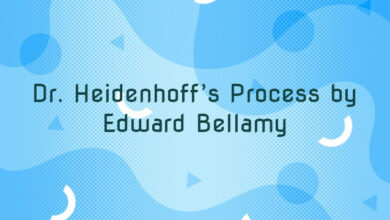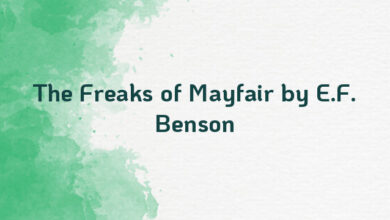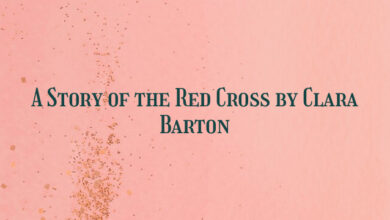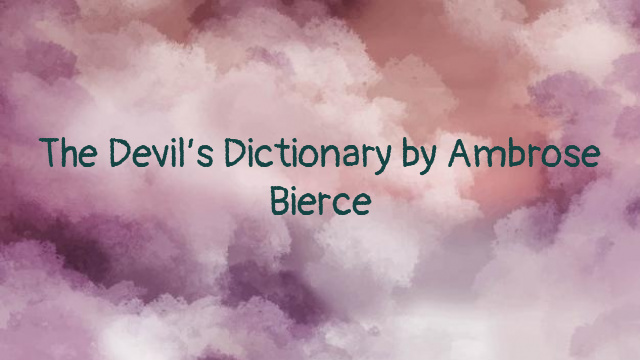
The Devil’s Dictionary by Ambrose Bierce
Originally published as The Cynic’s Word Book, Ambrose Bierce’s wickedly satirical “reference book” was retitled The Devil’s Dictionary in 1911.
Preface
The Devil’s Dictionary was begun in a weekly paper in 1881, and was continued in a desultory way at long intervals until 1906. In that year a large part of it was published in covers with the title The Cynic’s Word Book, a name which the author had not the power to reject or happiness to approve. To quote the publishers of the present work: “This more reverent title had previously been forced upon him by the religious scruples of the last newspaper in which a part of the work had appeared, with the natural consequence that when it came out in covers the country already had been flooded by its imitators with a score of ‘cynic’ books — The Cynic’s This, The Cynic’s That, and The Cynic’s Other. Most of these books were merely stupid, though some of them added the distinction of silliness. Among them, they brought the word “cynic” into disfavor so deep that any book bearing it was discredited in advance of publication. Meantime, too, some of the enterprising humorists of the country had helped themselves to such parts of the work as served their needs, and many of its definitions, anecdotes, phrases and so forth, had become more or less current in popular speech. This explanation is made, not with any pride of priority in trifles, but in simple denial of possible charges of plagiarism, which is no trifle. In merely resuming his own the author hopes to be held guiltless by those to whom the work is addressed — enlightened souls who prefer dry wines to sweet, sense to sentiment, wit to humor and clean English to slang. A conspicuous, and it is hope not unpleasant, feature of the book is its abundant illustrative quotations from eminent poets, chief of whom is that learned and ingenius cleric, Father Gassalasca Jape, S.J., whose lines bear his initials. To Father Jape’s kindly encouragement and assistance the author of the prose text is greatly indebted.
Poor Isabella's Dead, whose abdication
Set all tongues wagging in the Spanish nation.
For that performance 'twere unfair to scold her:
She wisely left a throne too hot to hold her.
To History she'll be no royal riddle --
Merely a plain parched pea that jumped the griddle.
G.J.
Poor Isabella's Dead, whose abdication
Set all tongues wagging in the Spanish nation.
For that performance 'twere unfair to scold her:
She wisely left a throne too hot to hold her.
To History she'll be no royal riddle --
Merely a plain parched pea that jumped the griddle.
G.J.
An infinite number of things.
'Tis the answer to What? and How? and Why?
And Whence? and Whither? -- a word whereby
The Truth (with the comfort it brings)
Is open to all who grope in night,
Crying for Wisdom's holy light.
Whether the word is a verb or a noun
Is knowledge beyond my reach.
I only know that 'tis handed down.
From sage to sage,
From age to age --
An immortal part of speech!
Of an ancient man the tale is told
That he lived to be ten centuries old,
In a cave on a mountain side.
(True, he finally died.)
The fame of his wisdom filled the land,
For his head was bald, and you'll understand
His beard was long and white
And his eyes uncommonly bright.
Philosophers gathered from far and near
To sit at his feat and hear and hear,
Though he never was heard
To utter a word
But "Abracadabra, abracadab,
Abracada, abracad,
Abraca, abrac, abra, ab!"
'Twas all he had,
'Twas all they wanted to hear, and each
Made copious notes of the mystical speech,
Which they published next --
A trickle of text
In the meadow of commentary.
Mighty big books were these,
In a number, as leaves of trees;
In learning, remarkably -- very!
He's dead,
As I said,
And the books of the sages have perished,
But his wisdom is sacredly cherished.
In _Abracadabra_ it solemnly rings,
Like an ancient bell that forever swings.
O, I love to hear
That word make clear
Humanity's General Sense of Things.
Jamrach Holobom
When in the course of human events it becomes necessary for
people to abridge their king, a decent respect for the opinions of
mankind requires that they should declare the causes which impel
them to the separation.
Oliver Cromwell
Spring beckons! All things to the call respond;
The trees are leaving and cashiers abscond.
Phela Orm
To men a man is but a mind. Who cares
What face he carries or what form he wears?
But woman's body is the woman. O,
Stay thou, my sweetheart, and do never go,
But heed the warning words the sage hath said:
A woman absent is a woman dead.
Jogo Tyree
Said a man to a crapulent youth: "I thought
You a total abstainer, my son."
"So I am, so I am," said the scrapgrace caught --
"But not, sir, a bigoted one."
G.J.
"My accountability, bear in mind,"
Said the Grand Vizier: "Yes, yes,"
Said the Shah: "I do -- 'tis the only kind
Of ability you possess."
Joram Tate
Consigned by way of admonition,
His soul forever to perdition.
Judibras
"Cheer up! Have you no aim in life?"
She tenderly inquired.
"An aim? Well, no, I haven't, wife;
The fact is -- I have fired."
G.J.
Allah's good laws I faithfully have kept,
And ever for the sins of man have wept;
And sometimes kneeling in the temple I
Have reverently crossed my hands and slept.
Junker Barlow
This thing Allegiance, as I suppose,
Is a ring fitted in the subject's nose,
Whereby that organ is kept rightly pointed
To smell the sweetness of the Lord's anointed.
G.J.
In contact, lo! the flint and steel,
By spark and flame, the thought reveal
That he the metal, she the stone,
Had cherished secretly alone.
Booley Fito
They stood before the altar and supplied
The fire themselves in which their fat was fried.
In vain the sacrifice! -- no god will claim
An offering burnt with an unholy flame.
M.P. Nopput
As sovereigns are anointed by the priesthood,
So pigs to lead the populace are greased good.
Judibras
The flabby wine-skin of his brain
Yields to some pathologic strain,
And voids from its unstored abysm
The driblet of an aphorism.
"The Mad Philosopher," 1697
When Jove sent blessings to all men that are,
And Mercury conveyed them in a jar,
That friend of tricksters introduced by stealth
Disease for the apothecary's health,
Whose gratitude impelled him to proclaim:
"My deadliest drug shall bear my patron's name!"
G.J.
If I were a jolly archbishop,
On Fridays I'd eat all the fish up --
Salmon and flounders and smelts;
On other days everything else.
Jodo Rem
God made the world in six days and was arrested on the seventh.
The Unauthorized Version
"Eat arsenic? Yes, all you get,"
Consenting, he did speak up;
"'Tis better you should eat it, pet,
Than put it in my teacup."
Joel Huck
One day a wag -- what would the wretch be at? --
Shifted a letter of the cipher RAT,
And said it was a god's name! Straight arose
Fantastic priests and postulants (with shows,
And mysteries, and mummeries, and hymns,
And disputations dire that lamed their limbs)
To serve his temple and maintain the fires,
Expound the law, manipulate the wires.
Amazed, the populace that rites attend,
Believe whate'er they cannot comprehend,
And, inly edified to learn that two
Half-hairs joined so and so (as Art can do)
Have sweeter values and a grace more fit
Than Nature's hairs that never have been split,
Bring cates and wines for sacrificial feasts,
And sell their garments to support the priests.
noble vertebrate. Indeed, it is doubted by some (Ramasilus, _lib. II., De Clem._, and C. Stantatus, _De Temperamente_) if it is not a god; and as such we know it was worshiped by the Etruscans, and, if we may believe Macrobious, by the Cupasians also. Of the only two animals admitted into the Mahometan Paradise along with the souls of men, the ass that carried Balaam is one, the dog of the Seven Sleepers the other. This is no small distinction. From what has been written about this beast might be compiled a library of great splendor and magnitude, rivalling that of the Shakespearean cult, and that which clusters about the Bible. It may be said, generally, that all literature is more or less Asinine.
"Hail, holy Ass!" the quiring angels sing;
"Priest of Unreason, and of Discords King!"
Great co-Creator, let Thy glory shine:
God made all else, the Mule, the Mule is thine!"
G.J.
Facilis descensus Averni,
The poet remarks; and the sense
Of it is that when down-hill I turn I
Will get more of punches than pence.
Jehal Dai Lupe
